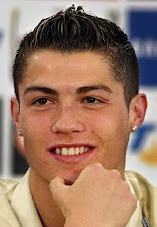DAKAR, 3 December 2010 (IRIN)
- People across Abidjan
shuttered shops and offices and
rushed home fearing violence
after the Constitutional Council
on 3 December declared Laurent
Gbagbo winner of Côte d’Ivoire’s
presidential election – nullifying
provisional results released by
the Independent Electoral
Commission (CEI) the previous
day.
The CEI had named Alassane
Ouattara the winner, taking 54
percent of the vote, against 46
percent for Gbagbo. But
rejecting the CEI ’s work, the
Constitutional Council ruled for
Gbagbo, giving him 51 per cent
of the vote against 49 for
Ouattara. The Council
discounted the votes from seven
departments in the north
- generally areas favouring
Ouattara - noting “flagrant
irregularities”.
News of the dramatic
turnaround brought people onto
to the streets in some
neighbourhoods of Abidjan, the
economic capital, some
reportedly burning cars and
shops. A local resident in the
Marcory area said: “It‘s calm
here for now, but people fear
things could quickly degenerate.
You see smoke coming from
neighbouring districts and you
think: ‘that means buildings are
being burned’. People are wary.”
“From now everything is possible
from demonstrations to civil
war, ” International Crisis Group
senior West Africa analyst
Rinaldo Depagne told IRIN.
Ivoirians and the international
community had hoped the long-
overdue elections would put the
country on the road to ending
eight years of bitter and often
violent division. An insurgency
that started with a coup attempt
in September 2002 led to the de
facto partition of Côte d ’Ivoire,
with rebels occupying a vast part
of the country, particularly the
north.
The 28 November run-off
election pitted Gbagbo against
his long-time political rival
Ouattara in a contest that took
place against a backdrop of
inter-ethnic tensions and political
polarization.
While both rounds of voting
went ahead without major
disruption, the post-election
period brought a return of the
volatility that has accompanied
previous elections, with both
sides accusing the other of
strong-arm tactics amidst a
barrage of appeals for calm
from the UN, the United States,
the African Union and others.
The announcement of
completely different sets of
results by two key institutions has
presented the UN with a
particularly difficult scenario.
Speaking shortly after the
Constitutional Council’s
announcement of a Gbagbo
victory, the Special
Representative of the UN
Secretary-General in Côte
d ’Ivoire Choi Young-jin
recognized the results issued by
the CEI result, making Ouattara
winner. The Security Council has
already warned from New York
of the need to respect the CEI ’s
work and hinted at measures
that could be taken if the right
procedures are not respected.
A senior official with Gbagbo’s
Front Populaire ivoirien party
dismissed external players, saying
that Côte d ‘Ivoire would take
little notice of external criticism
on the handling of the elections.
“We do not need the
international community.” He
said that the incumbent would
now show himself to be a truly
national leader, “bringing all
Ivorians together and
establishing the state ’s authority
across national territory.”
But Crisis Group's Depagne and
other watchers say Gbagbo ’s
staying in power would mean the
country would remain divided.
Even when the Ggabgo
government on 2 December
ordered borders closed, borders
with Mali, Liberia, Burkina Faso
and Ghana in the rebel north
remained open, residents in the
north told IRIN.
Depagne said Gbagbo and his
entourage appear to be looking
solely at the immediate goal of
staying in power.
“If his only objective is to keep
power, he can do it. But what
kind of power would he have?
None of the money pledged by
donors and private investors
would come in. It would be a
rogue state for the next two or
three years; an unending legal
row is also likely. ”
People in the centre-north town
of Bouaké – the rebels' base
since the 2002 uprising – say they
will not accept the reversal, a
Ouattara supporter there told
IRIN.
“What I am hearing from people
is that Alassane Ouattara is the
president – that makes him the
head of state and they are not
going to accept what comes
from Laurent Gbagbo. ”
He warned there is likely to be
strong resistance within the
military. “My impression is that
most soldiers voted for Ouattara.
I am sure that within 48 hours
there will be a military uprising. If
people do not watch it, the
country is going to head back to
war. ”
Corinne Dufka, senior West
Africa researcher for Human
Rights Watch, said: “Laurent
Gbagbo has acted with utter
disregard for the rights of his
people to freely and fairly elect
their leader, a right they have
waited way too long to exercise."
Intrinsic is joining Google to accelerate the future of physical AI.
-
Founded as an Other Bet by Alphabet in 2021, Intrinsic is now joining
Google.
3 hours ago



















